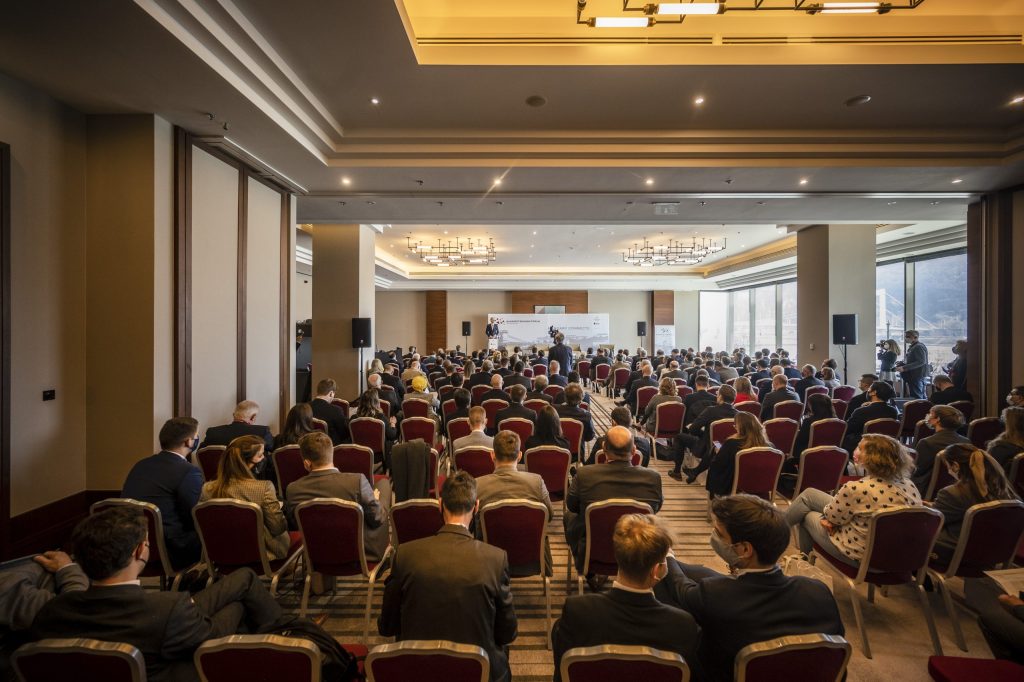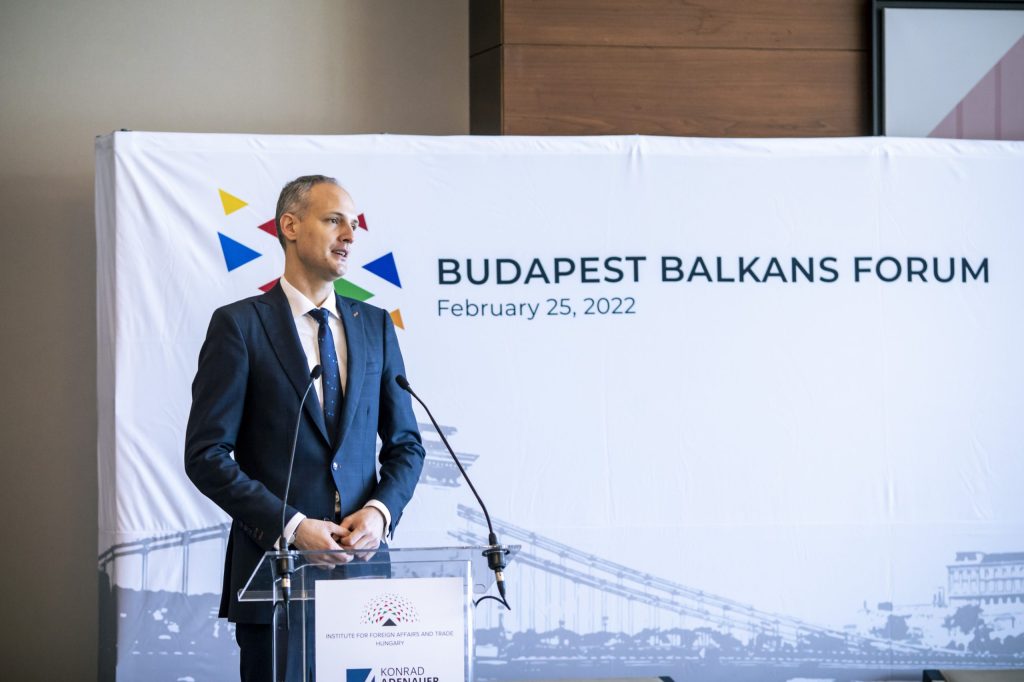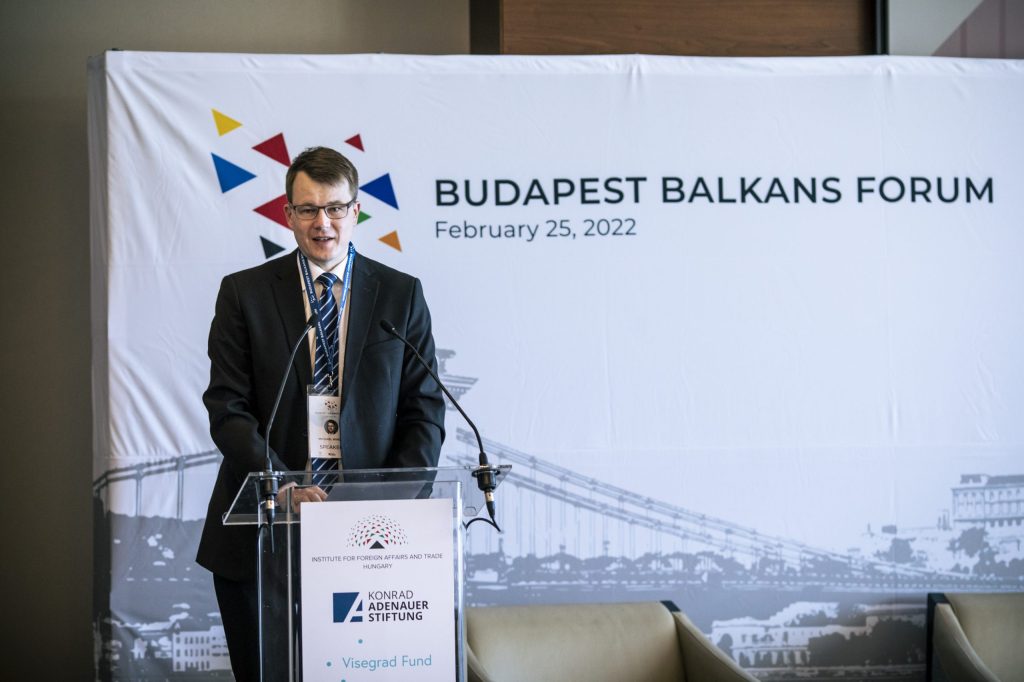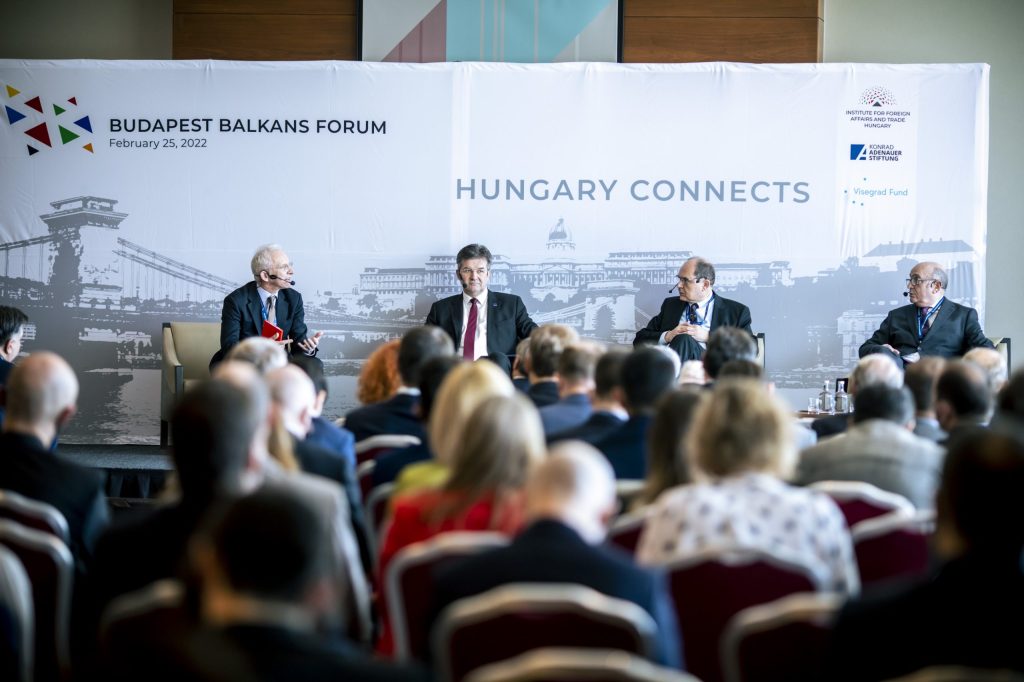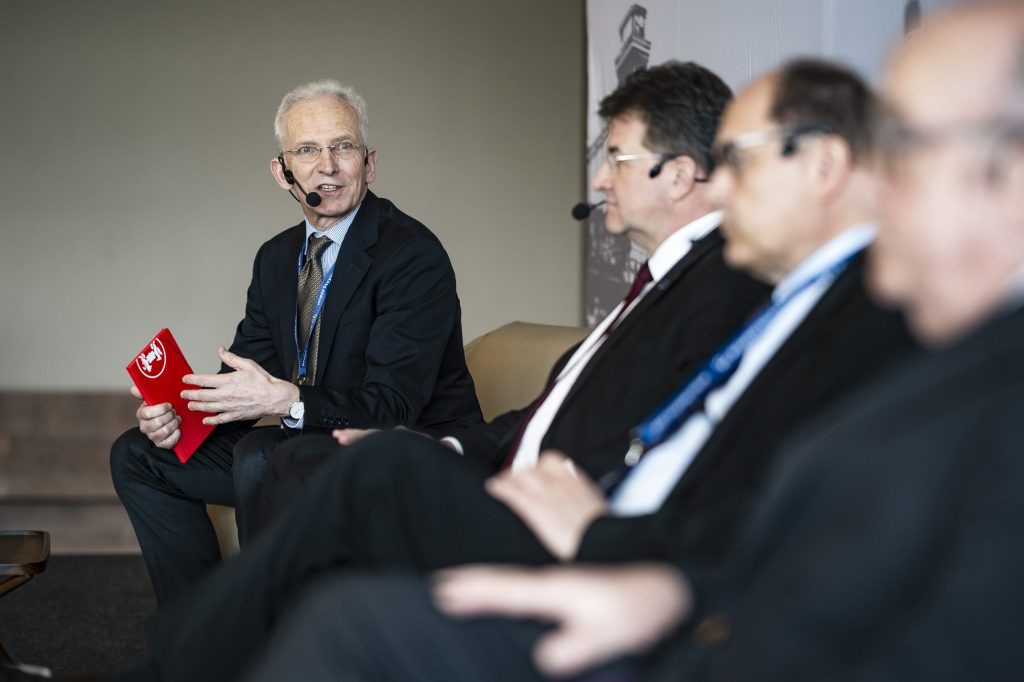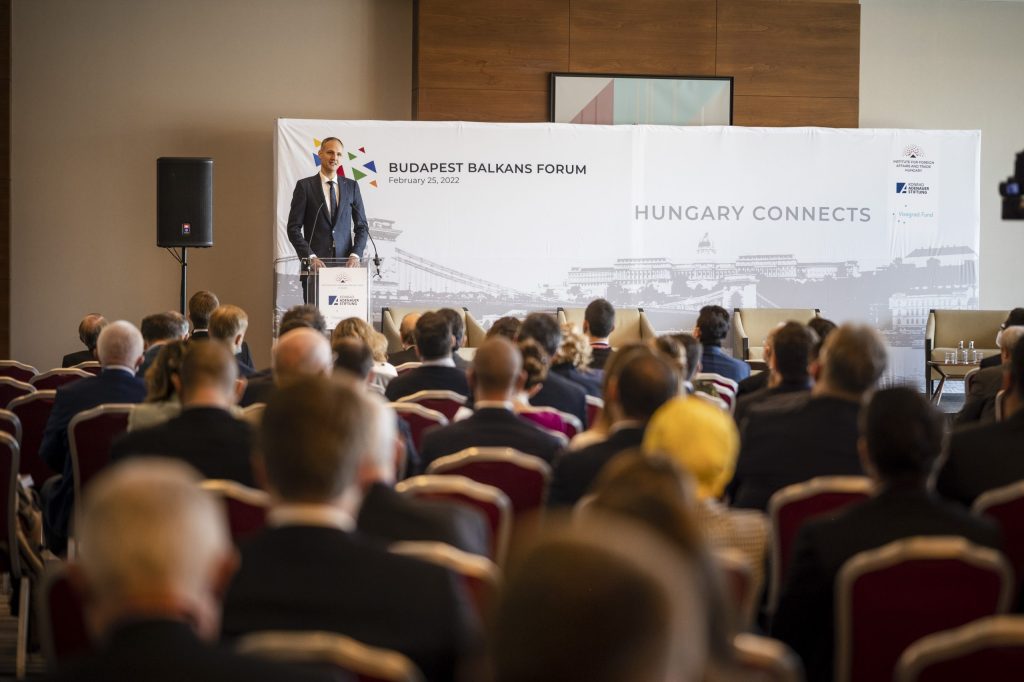The Budapest Balkans Forum organized by the Institute for Foreign Affairs and Trade (IFAT) and the Budapest office of the Konrad-Adenauer-Stiftung (KAS) took place between February 24-25, 2022. The organizers continued their long-lasting tradition of brining experts and policy-makers together to discuss timely topics concerning the Western Balkans. Given the key role of the region among the Visegrad countries’ foreign policy priorities, the seventh instalment of the joint conference took on an extended format. The event included a Night Owl session, a high-level panel discussion and three separate blocs dealing with the Western Balkans under Chatham House rule.
The full-day conference was held on 25 February. Nine, expert-level panel discussions and a high-level panel followed the opening remarks of the heads of the two co-organizing institutes. Mr Michael Winzer (KAS) and Mr Márton Ugrósdy (IFAT) both stressed that this is the seventh year that the two institutes jointly organized their Western Balkans conference, and the larger scale of the event underlines the relevance of the topic discussed throughout the program.
The panel discussions focused on EU–Western Balkans relations, the most burning issues of the region and on the Western Balkans’ post-pandemic economic outlook. The high-level panel dealt with the current situation of the Western Balkans from the point of view of high-ranking regional representatives; panellists included Christian Schmidt, High Representative for Bosnia and Herzegovina; Miroslav Lajčák, EU Special Representative for the Belgrade–Pristina Dialogue and other Western Balkan regional issues; and Air Chief Marshal Sir Stuart Peach, Special Envoy to the Western Balkans of the United Kingdom. The roundtable discussion was moderated by Stefan Lehne, Visiting scholar at Carnegie Europe.
During his presentation, High Representative Schmidt highlighted the internal problems of Bosnia and Herzegovina, such as the reform of the election laws. Special Representative Lajčák described the current situation of the Belgrade–Pristina normalization talks and the European Union’s overall mission and objectives in the Western Balkan region. Sir Peach reaffirmed the UK’s commitment to security and stability in the region and highlighted the importance of regional cooperation. Each panellist condemned the Russian war against Ukraine and perceived it as a possible security dilemma for the Western Balkans as well. The panellists agreed that the EU lost a great amount of credibility during the lack of the accession negotiations and advocated for stronger regional cooperation.
